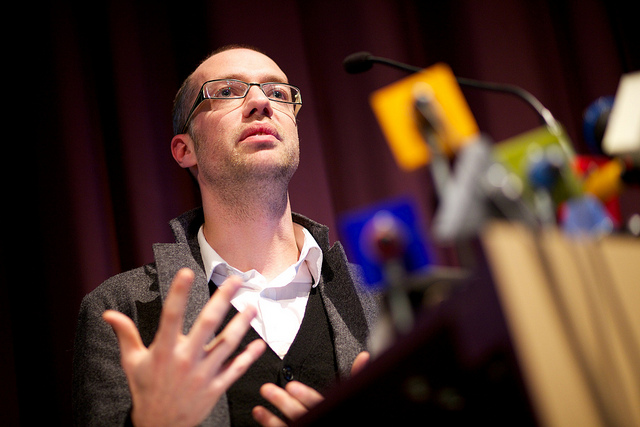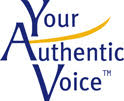
Courtesy of Flickr user Het Nieuwe Instituut
The spoken word has the power to move mountains because it has the power to move the human heart. We know this. We’ve experienced it. The question is, how do we create that capacity within our own speeches?
Several years ago I heard Nando Parrado speak about his trek out of the Andes after the plane he was in crashed, which carried the rest of his soccer team and members of their families. He decided to write his own account of this experience and then go on the speaking circuit. He is the author of Miracle in the Andes. You may know of his journey from the documentary, “I Am Alive.”
It became clear many weeks after they had crashed that no one could find them and the search had been called off. After losing many of their party to injuries and sub-zero temperatures, Parrado lead an expedition into the mountains in hopes of finding civilization. He and his fellow trekkers did the impossible and walked out of the Andes to find help and save the other survivors, who had remained at the crash site.
As he spoke, sharing slides of the wreckage and survivors, the audience literally wept, myself included. The choices they had to make were inconceivable. His heroic journey was beyond belief. But, that wasn’t the only reason he touched his audience so deeply. The words he selected were imbued with an intensity and power that spoke to the tragedy, pain and stamina he and the others endured, and of the redemptive love he ultimately experienced.
I was so moved I bought several copies to give to family members. I will never forget him or his speech.
So, what does it take to deeply move your audience?
- Completely commit to living your words. To placing yourself into the situation you experienced and sharing them from that place. This means being vulnerable, honest and open. It means being naked to the emotions that experience evoked and evokes.
- Take the time to choose your words so they say precisely what you want to say. Mark Twain once said the difference between the right word and the almost right word is the difference between lightening and a lightening bug. That’s quite a difference. Language that is generic doesn’t grab us. It doesn’t elevate. It has a muted quality to it. To really connect takes searching for that exact right word so your audience can explode with joy or seethe with righteous anger.
- Write for the ear. Listen for pauses and breaks in the story. Write how you speak. Most of us don’t speak in paragraphs. Most of us don’t use jargon. We speak simply and clearly.
- Edit out the unnecessary. If it doesn’t move the story forward, it needs to go. You can have a pearl of wisdom, but if it’s all covered up with extra verbiage, it might as well not be there. Less is more.
- Add the artistry. Look at what you’ve crafted and ask yourself, how can I give this more life, more beauty, more energy? What metaphors can I use? What turns of phrase? How can I make listening to this speech a life-changing experience?
Sometimes that perfect word or phrase can move mountains. It can heal a heart. It can change a life. I would love to support you to craft and present a speech that deeply moves your audience. I can be reached at Andrea@AndreaBeaulieu.com

Leave A Comment